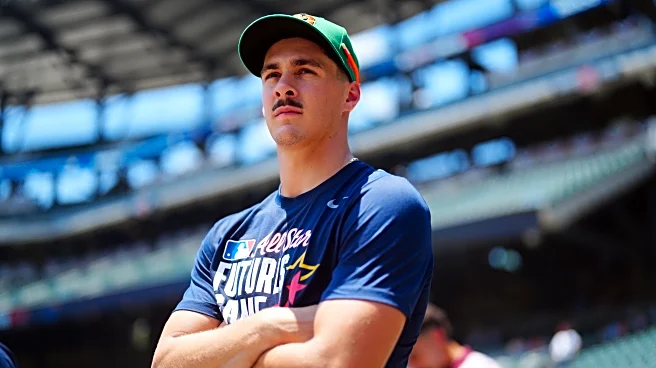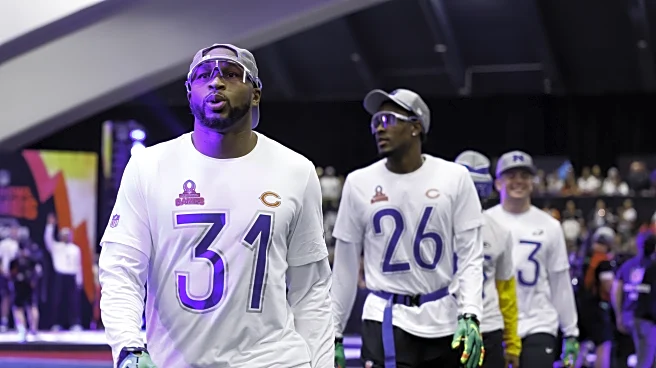What's Happening?
Alex Bregman has decided to opt out of his contract with the Boston Red Sox, foregoing the remaining two years and $80 million of his deal. This decision comes after a strong season where Bregman posted
a .273 batting average, a .360 on-base percentage, and a .462 slugging percentage over 114 games. Despite missing seven weeks due to a right quad injury, he managed to achieve a 125 wRC+ and was worth 3.5 fWAR, ranking seventh among major league third basemen. Bregman's defensive performance was above average, although slightly down from his previous season with the Astros. His contract included deferred payments, reducing the actual annual value, which he aims to surpass in the free agent market. Bregman is ineligible for a qualifying offer, making him a more attractive option for teams as they won't have to forfeit draft picks to sign him.
Why It's Important?
Bregman's decision to opt out is significant for the MLB free agent market, as he becomes one of the top available third basemen. His strong performance and absence of draft pick compensation requirements make him a desirable candidate for teams looking to strengthen their infield. The Red Sox, having traded Rafael Devers, might consider re-signing Bregman, especially as they navigate luxury tax considerations. Other teams, such as the Tigers and Cubs, have shown interest in Bregman previously and may pursue him again. His departure from Boston could lead to strategic shifts in the team's roster, potentially involving prospects like Marcelo Mayer or other free agents like Eugenio Suarez.
What's Next?
Bregman will likely seek a long-term contract this offseason, aiming to secure a deal that surpasses the deferred value of his previous contract. The Red Sox, Tigers, and Cubs are potential suitors, with each team weighing their roster needs and financial strategies. The Red Sox's decision will be influenced by their luxury tax position and the potential decline of mutual options for players like Lucas Giolito and Liam Hendriks. If Bregman leaves Boston, the team may explore other free agent options or promote from within. The Tigers, in particular, could benefit from Bregman's offensive capabilities, given their current third baseman's performance.
Beyond the Headlines
Bregman's opt-out decision highlights the complexities of MLB contracts, particularly those involving deferred payments and luxury tax implications. His move could influence other players considering similar contract structures, as they weigh immediate financial benefits against long-term earnings. Additionally, Bregman's market value and the absence of draft pick penalties could set a precedent for future free agent negotiations, impacting how teams approach contract offers and player retention strategies.










